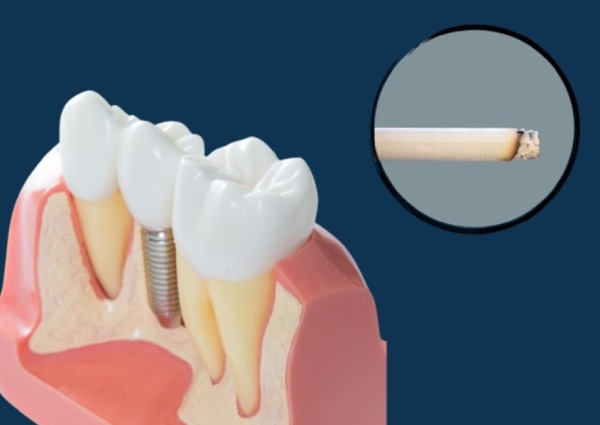


Smoking is known to have severe consequences on overall health, but many people underestimate its impact on oral health and dental implants. While dental implants are one of the most effective and long-lasting solutions for missing teeth, smoking can drastically reduce their success rate and cause multiple oral health issues. Understanding how smoking interferes with dental implants and your oral health can help you make better decisions for your smile.
Dental implants require healthy gums and bones to properly fuse with the jawbone in a process called osseointegration. Smoking negatively impacts this healing process because nicotine reduces blood flow to the gums and bone tissue. As a result, smokers face a higher risk of implant failure compared to non-smokers. Studies have shown that implant success rates are significantly lower in smokers, as the habit delays healing and prevents the implant from stabilizing effectively.
- Reduced oxygen supply slows down healing.
- Nicotine affects bone density, making osseointegration less effective.
- Increased chances of infection due to weaker immune response.
Aside from increasing the risk of implant failure, smoking can lead to several oral health concerns. Smokers are more prone to gum disease, receding gums, and tooth loss—all of which can affect dental implants. Furthermore, smoking causes persistent bad breath, tooth discoloration, and increases the risk of oral cancer. When gums and surrounding tissues are compromised, they cannot provide the necessary support for implants to succeed.
- Higher risk of periodontal (gum) disease.
- Weaker bone structure around teeth and implants.
- Greater sensitivity and discomfort during recovery.
If you are a smoker planning to get dental implants, it’s important to understand that lifestyle changes may be necessary for long-term success. Many dentists recommend quitting smoking before and after implant surgery to enhance healing. If quitting entirely isn’t possible, reducing smoking and avoiding it during the recovery period can improve implant survival rates. Maintaining excellent oral hygiene, attending regular dental check-ups, and following professional care advice are also critical for protecting your implants and overall oral health.
- Quit or reduce smoking before surgery.
- Maintain proper brushing and flossing habits.
- Visit your dentist regularly for professional cleaning and check-ups.
Conclusion: Smoking poses serious risks to dental implant success and overall oral health. By understanding the challenges and making conscious efforts to quit or reduce smoking, you can improve your chances of a healthy, confident smile. At Dentist Adda, we provide the best dental implant treatments and comprehensive oral care solutions tailored to your needs. Our expert team ensures that every patient receives personalized care for long-lasting results.

